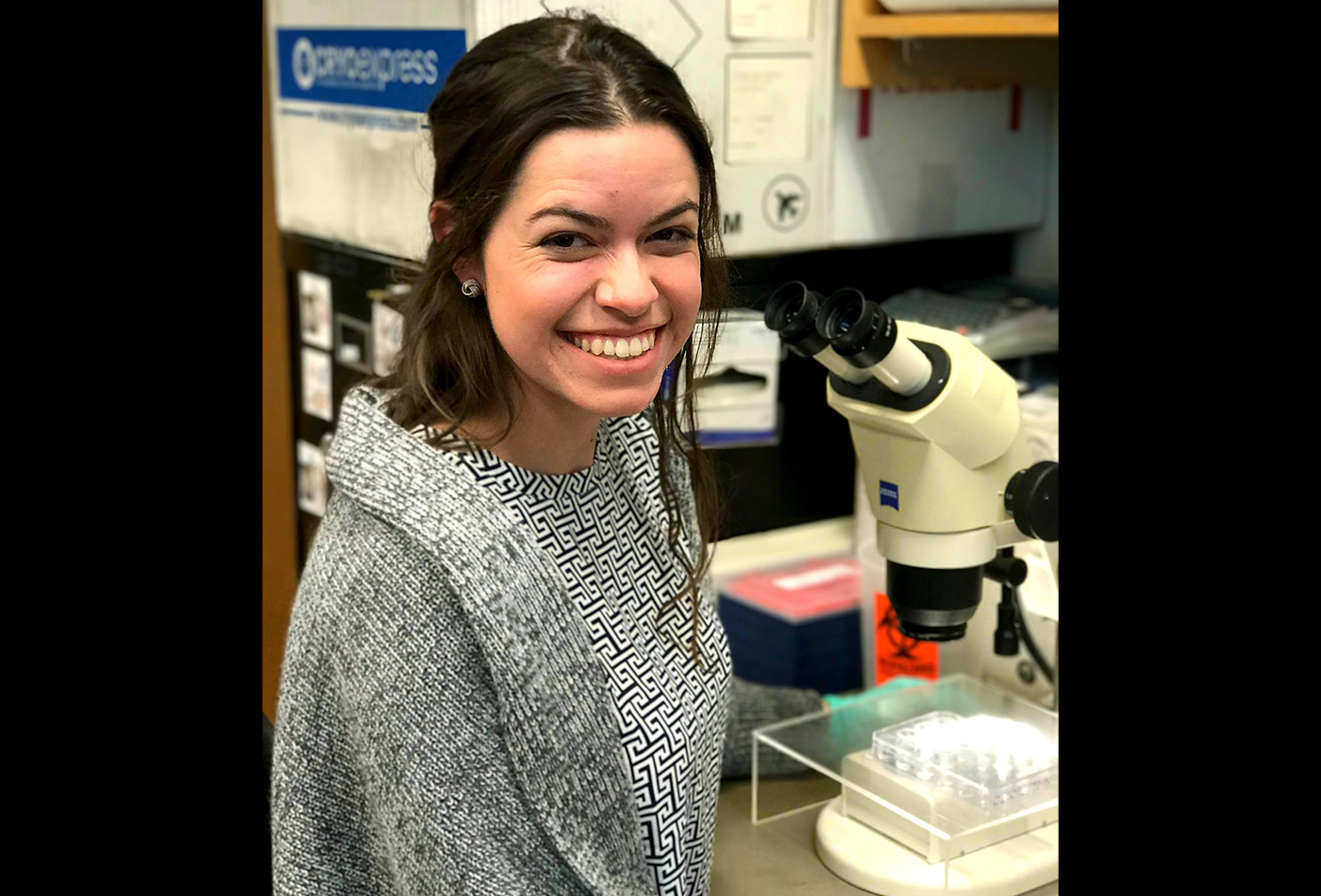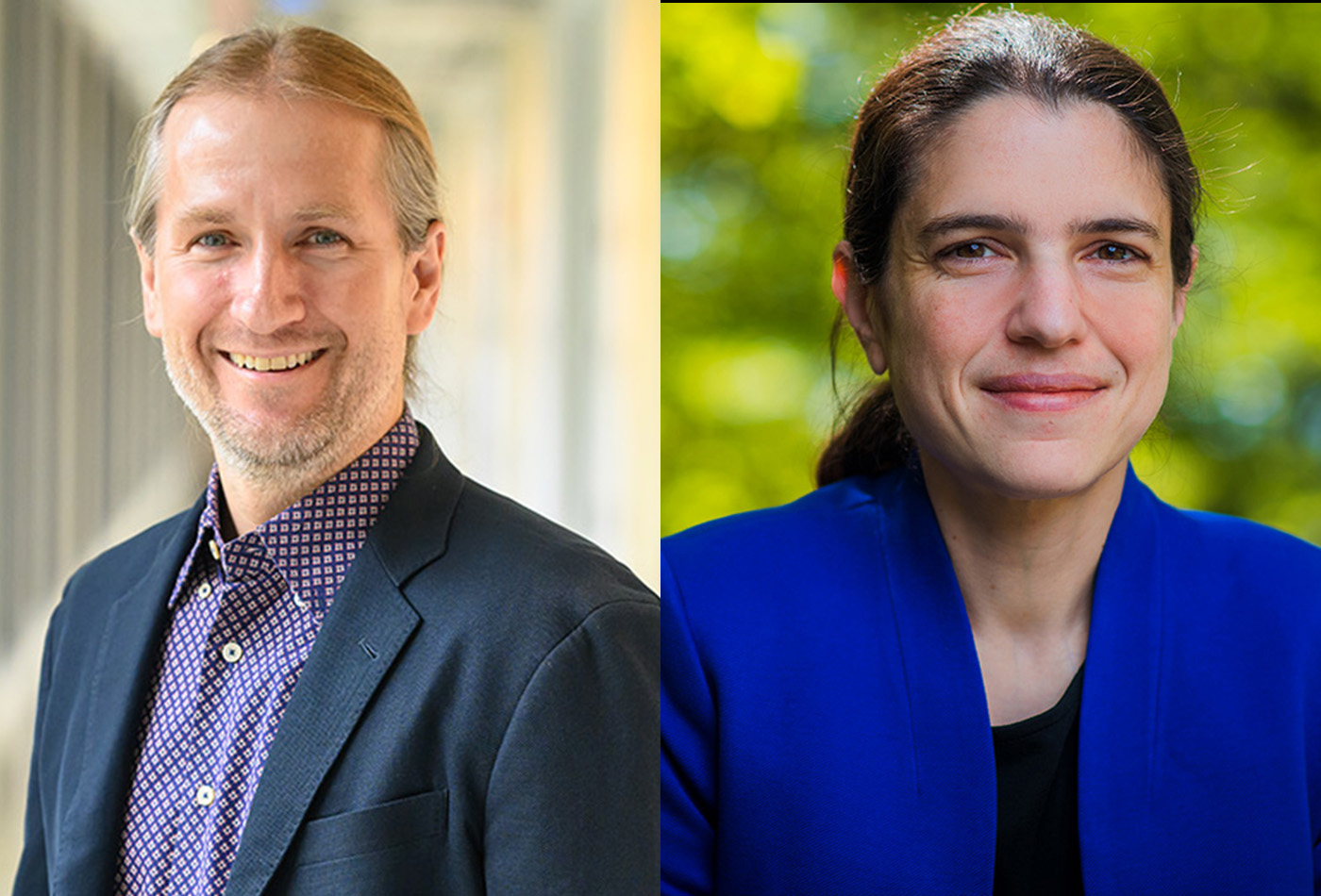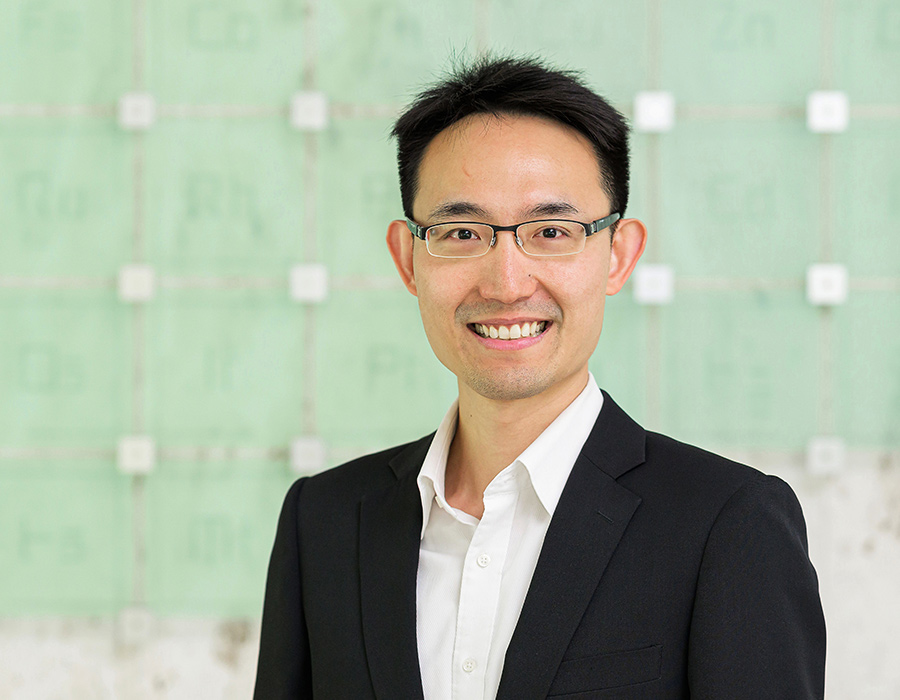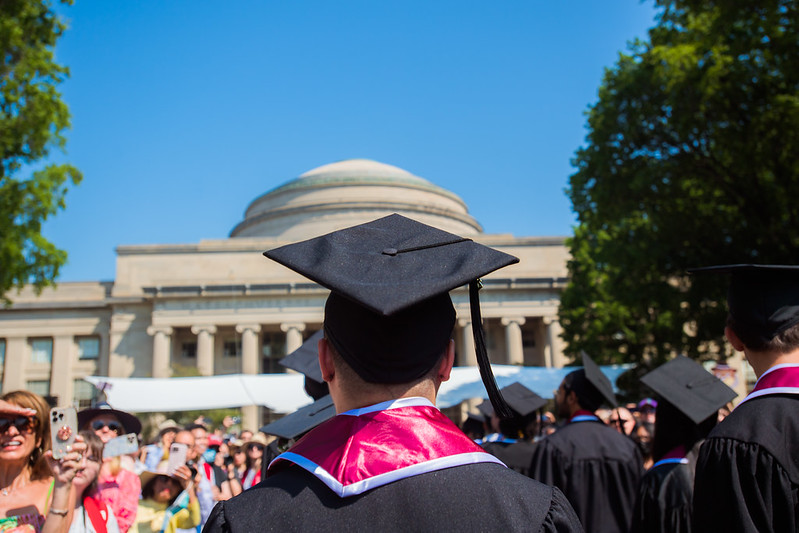Lindsey Backman receives Hugh Hampton Young Fellowship
Individuals selected as Hugh Hampton Young Fellows exhibit a blend of broad focus, leadership, and initiative.
Graduate Student Lindsey Backman has been selected to receive the 2021 Hugh Hampton Young Fellowship.
“I am extremely grateful to have been nominated and awarded the Hugh Hampton Young Fellowship,” said Backman. “This award is special to me because the selection committee weighs leadership initiative and the desire to make a positive impact on MIT’s campus and humanity even more heavily than academic achievement. As a biochemist who is passionate about tackling challenging and important scientific questions that will benefit humanity, but who also hopes to help make academia a more inclusive environment for scientists from all backgrounds, I am truly honored to be recognized with this award.”
Backman, a member of Professor Catherine Drennan‘s research group, is passionate about uncovering new chemistry in the human microbiome. “My graduate research is specifically focused on biochemically and structurally characterizing members of the glycyl radical enzyme superfamily, a family of enzymes that perform challenging, radical-based chemical reactions and are abundant in the human gut microbiome,” said Backman. In the Drennan lab, she has solved structures of new members of this enzyme family, primarily using the techniques X-ray crystallography and cryogenic electron microscopy (cryo-EM), and performed biochemical experiments to probe how these enzymes operate at the atomic level.
“Even though we as humans actually contain far more microbial cells than human cells, there are still huge gaps in our understanding of how different bacterial species affect mammalian health,” said Backman. “I am especially fascinated by how bacteria can use enzymes to tap into niche nutrient pools to survive and how they can use their unique chemical capabilities to compete with other bacteria. One of the largest global health challenges our society faces today is antibiotic resistance. Understanding the competitive strategies that disease-causing bacteria, or pathogens, employ to outcompete healthy bacteria are critical for tackling this issue, and I hope to continue exploring this area of research during graduate school and in my future career.”
Recipients of the Hugh Hampton Young fellowship are selected by an external committee comprised of former Hugh Hampton Young Fellowship recipients and individuals with a distinct interest in the MIT community. Those selected as Hugh Hampton Young Fellows exhibit a blend of broad focus, leadership, and initiative, and by receiving this fellowship, they become part of a legacy of exceptional individuals.
The objective of the anonymous founder of this Fellowship was to foster the development of outstanding individuals with the great breadth of vision and interests, and the capacity for technical leadership as exemplified by Hugh Hampton Young (September 18, 1870 – August 23, 1945), an American surgeon, urologist, and medical researcher whose contributions to the field of medicine include the “boomerang needle”, a type of surgical needle designed for working with deep incisions, as well as a device known as the Young punch, used in prostatectomy procedures.





